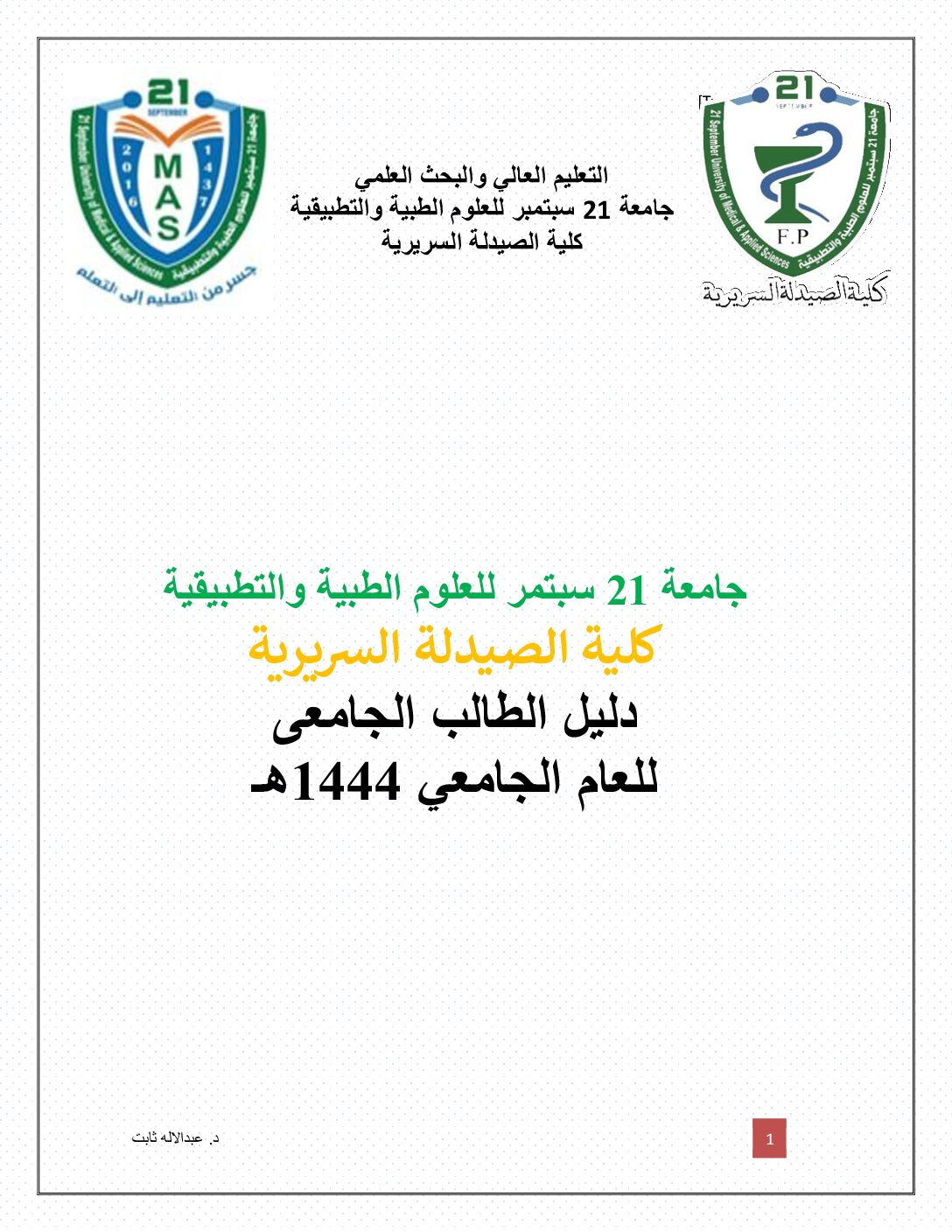Mission
The program aims to provide pharmaceutical education in all aspects of pharmacy practice using principles of comprehensive pharmaceutical care that develop and improve the professional skills necessary to prepare and qualify graduates who are able to provide solutions to medication problems and improve the health and quality of care locally and regionally.
Certificate awarded
Bachelor of Clinical Pharmacy
Program Objectives
- Graduate distinguished pharmacists with professional essential skills such as teamwork, leadership, creative thinking, and work ethics.
- Providing students with basic and professional knowledge leading to the clinical pharmacy degree
- Provide students with professional abilities to provide patient-centered care through the provision of safe and effective medicines
- Provision of continued pharmaceutical education and participation in the field of scientific publications
- Participate in the process of improving professional qualification and competency locally, regionally, and internationally.
Graduate Attributes
Upon successful completion of this program, graduates will be able to
- Demonstrate scientific knowledge and principles of chemical, biomedical, microbiological, physiological, pathological, behavioral, and other basic sciences related to the pharmacy profession.
- Integrate knowledge from fundamental sciences necessary for handling, disposing of, preparing, compounding, and analyzing parenteral nutrition, I.V admixtures, and small-batch preparation.
- Provide legally and ethically patient education, appropriate advice, and counseling services about safe, rational, cost-effective use of natural/ synthetic medicines, complementary therapies, and over-the-counter products using endorsed professional protocols.
- Demonstrate the responsibilities and roles of the pharmacist in contributing to the health care system of society considering pharmacovigilance, pharmacoeconomics and pharmacoepidemiological factors, and legal, ethical, and professional rules.
- Apply patient-centered care as the medication expert (collect and interpret evidence, identify drug-related problems, prioritize and formulate assessments and recommendations, implement, monitor, and adjust plans, and document activities).
- Work as part of a team with self-assurance, interpersonal collaboration, and communication, leadership time management, professionalism, critical thinking, creativity, innovation, problem-solving, entrepreneurship, and decision-making ability.
- Demonstrate self-commitment to independent and lifelong learning through evaluating medical literature, conducting pharmaceutical research in pharmacy settings, and updating information.
- Track the continuous updates concerning new therapeutic guidelines, regulations, and evidence-based medicine that are recently introduced.
Job Opportunities
Upon successful completion of this program, the graduates will be able to be
- Hospital Pharmacies
- Public Pharmacies
- Medical Management and Health Units
- Factories and Pharmaceutical Companies
- Pharmaceutical Advertising and Marketing
- Pharmaceutical Education and Scientific Research
- Central Administration and Sub-Departments of Pharmacy Affairs
- Pharmaceutical Regulatory Organizations
- World Health Organization
- Preventive Medicine and Medical Supply
- Hospitals






